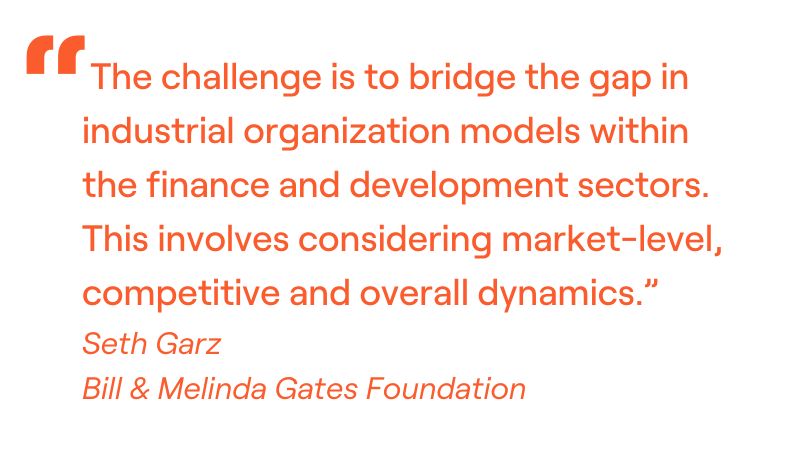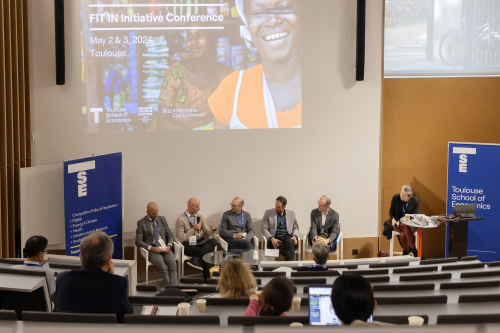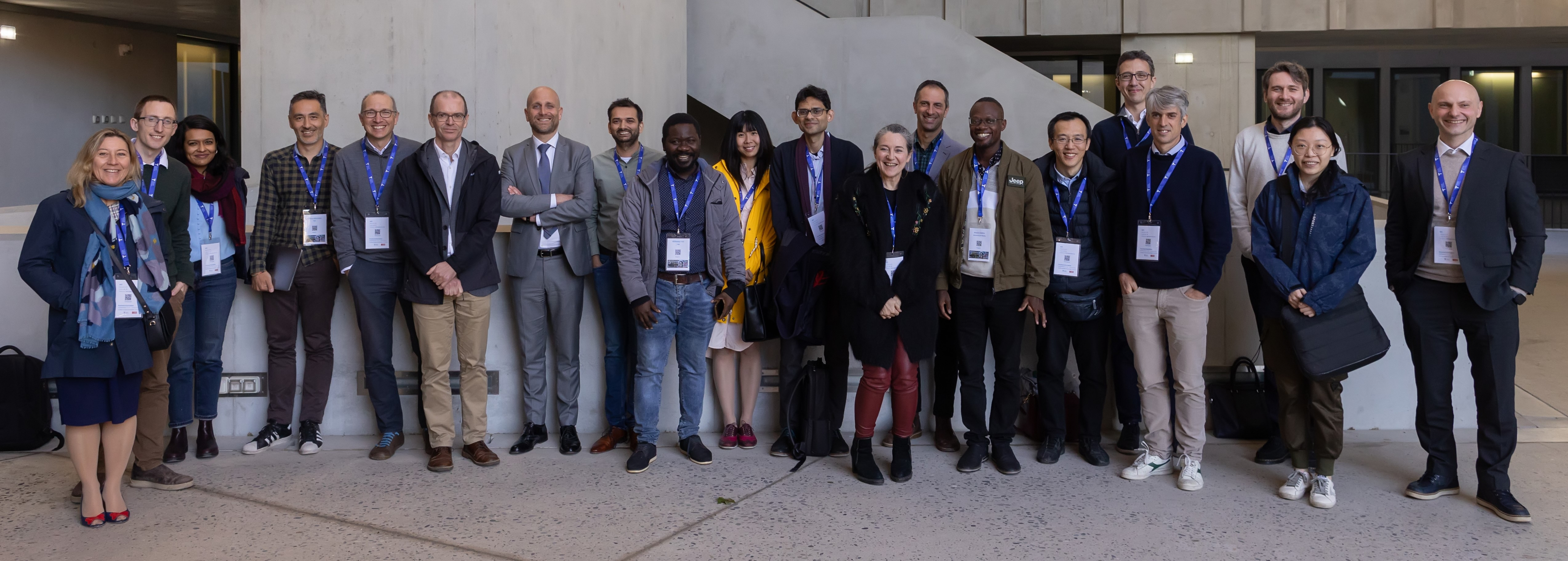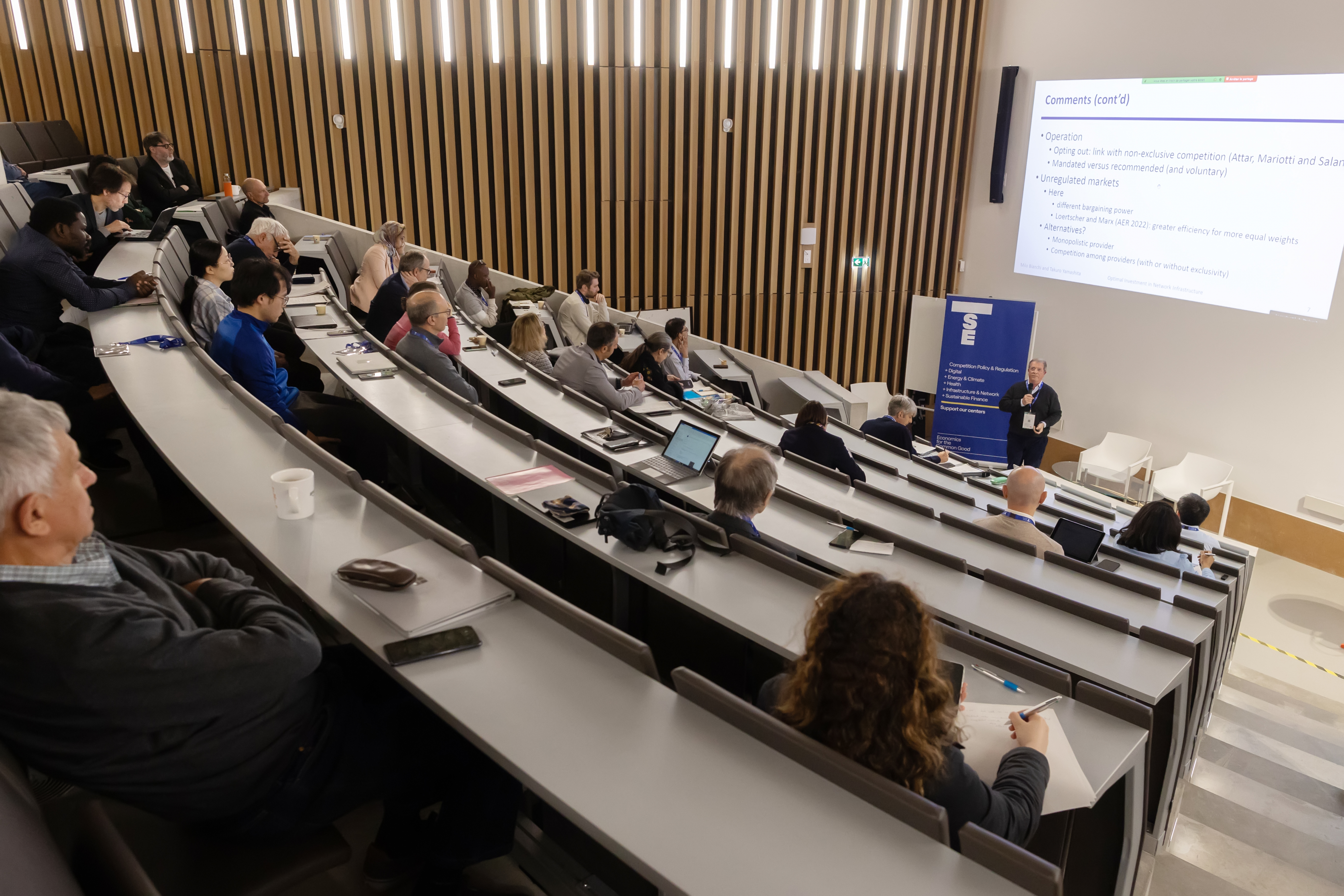On May 2 and 3, 2024 Toulouse hosted the final conference of the FIT IN Initiative (Financial Inclusion Through INteroperability). Established four years ago in partnership with the Bill & Melinda Gates Foundation, this TSE research project has sought to guide the design and regulation of interoperable digital financial services in low- and middle-income countries.
This third and final edition of the conference showcased the Initiative's achievements, bringing together policymakers, experts, and scholars from around the globe. It featured a keynote lecture by TSE’s Nobel Laureate Jean Tirole, a lively roundtable discussion, and ten academic presentations that examined how digital interoperability can boost financial inclusion through competition, cooperation, and investment in critical infrastructure.
Roundtable: "Competition and regulation in digital payments"
Chaired by Emmanuelle Auriol (Professor of Economics at TSE and Scientific Director of the FIT IN Initiative), this multidisciplinary roundtable brought together economics researchers and experts on financial regulation.
 Seth Garz (Senior Program Officer for the Bill & Melinda Gates Foundation’s Inclusive Financial Systems team) explained the Foundation’s support for the FIT IN Initiative and its interest in cutting-edge research into financial inclusion and interoperability. The challenge is to bridge the gap in industrial organization models within the finance and development sectors. This involves considering market-level, competitive and overall dynamics. Coordinating research in development economics and industrial organization, as well as collecting empirical data to test theoretical models, will assist regulators and policymakers in making informed decisions. Consumers can also benefit from the implementation of a well-designed interoperability framework.
Seth Garz (Senior Program Officer for the Bill & Melinda Gates Foundation’s Inclusive Financial Systems team) explained the Foundation’s support for the FIT IN Initiative and its interest in cutting-edge research into financial inclusion and interoperability. The challenge is to bridge the gap in industrial organization models within the finance and development sectors. This involves considering market-level, competitive and overall dynamics. Coordinating research in development economics and industrial organization, as well as collecting empirical data to test theoretical models, will assist regulators and policymakers in making informed decisions. Consumers can also benefit from the implementation of a well-designed interoperability framework.
Thomas Montcourrier (Policy Analyst, OECD) highlighted the importance of improving consumers' financial and digital literacy. In particular, he emphasized the need for consumer empowerment to protect them against scams.
Marc Bourreau (Professor of Economics, Telecom Paris) discussed his experience working with the Central Bank of Mozambique on mobile payments. He reported the short-term and long-term benefits of mobile payments and the consequences of interoperability for the market.
Xavier Gine (Lead Economist, World Bank) explained the documentation of mobile money transaction costs in Tanzania, Uganda, and Bangladesh. He explained that this includes the official prices reported by mobile money providers and the actual transaction costs, such as overcharging by agents, time costs, and the probability of completing a transaction.
Carlos Eduardo De Almeida (Consultant, Central Bank of Brazil) shared insights about the successful launch of the PIX instant payment scheme in Brazil. He discussed its implementation, main features, and various uses.
Keynote lecture: “Coopetition and Platform Regulation: Six Challenges for Economists”
Jean Tirole focused on the need for decision-makers to foster a competitive and equitable digital ecosystem by balancing cooperation, contestability, and fair access. TSE’s Nobel laureate highlighted the lack of research on the regulation of digital platforms despite their significance for modern economies.
Jean explained that many challenges are linked to the relationships between key players in the digital sector: “Regulators are worried that these actors will collaborate too much or too little. We may see too much cooperation because there are benefits from cooperating to procure a public good due to the complementarities or increasing returns to scale.” Collaboration in the form of joint R&D efforts, standard setting or sharing of intellectual property can be legitimate, he added, but may also create a risk of collusion. “People are simultaneously worried about too little cooperation and a lack of realization of network externalities which increase value for both consumers and businesses.”
Jean underscored the critical role of contestability, which ensures that more efficient platforms can enter the market: "This is important because a more efficient and innovative platform may not enter the ecosystem due to defensive mergers. Interoperability and the ability of users to ‘multihome’ across platforms are crucial for protecting contestability."
He also highlighted the importance of fair access to platforms, ensuring participants receive their fair share of the value they contribute and have equal access to core services. He noted that many digital platforms offer free core services to consumers, which is vital for understanding how these platforms can raise equity concerns by imposing excessive fees on businesses and favoring their own products.


Article published in TSE Reflect, June 2024
Photos © Studio Tchiz. Many thanks to Sabrine Bair & Hakan Ozyilmaz for their contribution.
Find out more FIT IN Initiative and FIT IN Initiative Conference.
